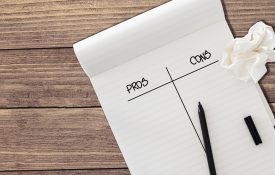-
What’s In A Name? That Next Promotion, For One Thing
Fast Company: Studies have shown that all sorts of ridiculous things correlate with people's relative power: if you're taller, more attractive, have a deeper voice, you'll be more likely be successful. And as a new study from Deutschland shows, your surname might be another factor. let's compare these German names: Kaiser (“emperor”) König (“king”) Fürst (“prince”) With these: Bergmann (“miner”), Schubert (“shoemaker”) Zimmerman (“carpenter”) What's the difference between the first group and the second? The first are noble-sounding (in the cases of princes, quite literally). Read the whole story: Fast Company
-
Cheerleader Effect: Why People Are More Beautiful in Groups
The Atlantic: Who should I hang out with if I want to look the most attractive? And how many of said people must I acquire? The basic idea of research published this week in the journal Psychological Science is that our asymmetries and disproportionalities tend to "average out" amid a group of faces, and our weird little faces are perceived as slightly less weird. Drew Walker and Edward Vul of the University of California, San Diego, did five experiments wherein subjects rated the attractiveness of people in photographs. Some people were pictured alone, and others were in groups.
-
Teens Who Drink Alone More Likely To Develop Alcohol Problems as Young Adults
Most teenagers who drink alcohol do so with their friends in social settings, but a new study by researchers at Carnegie Mellon University and the University of Pittsburgh reveals that a significant number of adolescents consume alcohol while they are alone. The researchers found that, compared to their peers who drink only in social settings, teens who drink alone have more alcohol problems, are heavier drinkers, and are more likely to drink in response to negative emotions. Furthermore, solitary teenage drinkers are more likely to develop alcohol use disorders in early adulthood.
-
It’s afternoon: immorality time!
The Boston Globe: There’s “normal business hours,” and then there are the hours where people are more likely to do business honorably. In several experiments, researchers found that people were less apt to lie and cheat in the morning compared to the afternoon. Since they were more mentally fatigued in the afternoon, they had more trouble resisting temptation and keeping morality in mind. ... Hitting the streets with a group of your friends might make you feel safer. But it may also make you look more attractive.
-

Under Stress, We Ignore the Negative Possibilities
When people under stress are making a difficult decision, they may pay more attention to the upsides of the alternatives they’re considering and less to the downsides, studies show..
-
Your Brain ‘Sees’ Things Even When You Don’t
The brain processes visual input to the level of understanding its meaning even if we never consciously perceive that input, according to new research published in Psychological Science, a journal of the Association for Psychological Science. The research, led by Jay Sanguinetti of the University of Arizona, challenges currently accepted models about how the brain processes visual information. Sanguinetti, a doctoral candidate in the UA’s department of psychology in the College of Science, showed study participants a series of black silhouettes, some of which contained recognizable, real-world objects hidden in the white spaces on the outsides.

